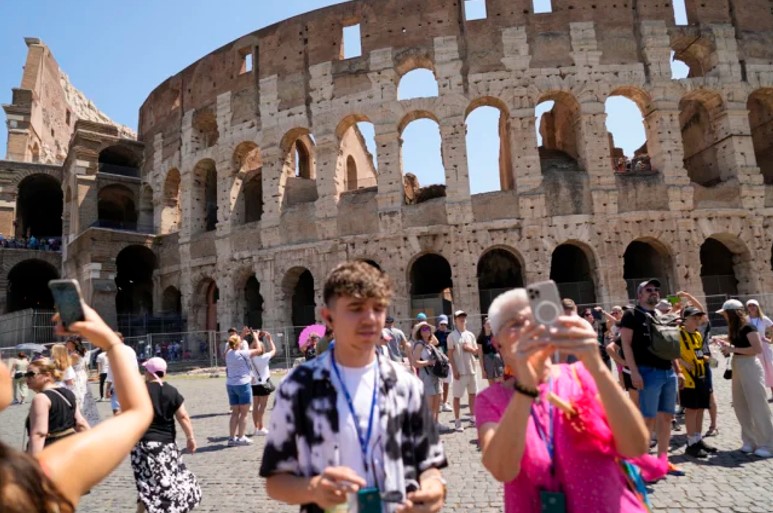Tourist expresses regret for damaging Colosseum, admitting ‘he had no idea it was so ancient’
A man caught on video last month as he used his keys to carve a message of love to his girlfriend on the Colosseum’s wall in Rome has issued an apology, stating ‘he had no idea the nearly 2000-year-old monument was so ancient’.
“I admit with deepest embarrassment that it was only after what regrettably happened that I learned of the monument’s antiquity,” wrote the man—identified by his attorney as 31-year-old Ivan Danailov Dimitrov—in a letter dated July 4 to the Rome prosecutor’s office, the mayor of Rome, and “the municipality of Rome.”
Excerpts from the letter were first published Wednesday in Rome’s daily newspaper Il Messaggero.
In the letter, Dimitrov recognized the “seriousness of the deed I committed” and extended his “heartfelt and sincere apologies to Italians and the entire world for the damage done to a monument, which is, in fact, heritage of all humanity.” Dimitrov pledged to “sincerely and concretely” make amends and rehabilitate his actions.
The incident was exposed last month when another tourist in Rome recorded a man etching “Ivan + Hayley 23/6/23” into a brick of the Colosseum. The video quickly spread, attracting widespread criticism for “Ivan,” whose identity was initially unknown. Despite being rebuked – with an expletive – by the person filming, Dimitrov continued.
The defaced brick was part of a wall constructed during a mid-19th century restoration of the monument, inaugurated in the first century AD. Nonetheless, the Colosseum authorities maintained that it did not excuse the vandalism.
Dimitrov was eventually identified by Italian military police officers who cross-checked the two lovers’ names with registered guests in Rome and found they had stayed in an Airbnb rental in the Cinecittà neighbourhood. Roberto Martina, the police commander who oversaw the operation, said they tracked Dimitrov to England, where he and his girlfriend reside. The girlfriend is not under investigation.
Italy has frequently dealt with unruly tourists leaving their mark. Three years ago, a series of incidents led lawmakers to increase penalties for damaging Italy’s prized cultural heritage. The country is also considering harsher laws against climate activists who have defaced cultural properties to highlight what they describe as governmental neglect towards climate change issues.
“It should be said that when foreign tourists come to Italy, from anywhere, not any particular nationality, there’s this idea that they’ve come to a country where everything is allowed, where they turn a blind eye, where it’s, ‘That’s how it goes,’” stated Alexandro Maria Tirelli, Dimitrov’s lawyer. However, his client may be caught up in the crackdown, facing between two and five years in prison and a fine up to 15,000 euros (about $24,470). Tirelli mentioned he was aiming for a plea bargain that would involve a fine but no jail time.
Dimitrov’s apology, according to his lawyer, was meant to clarify “that he had pulled what he thought was a harmless stunt.”
Italian media were critical on Wednesday. Il Messaggero criticized the letter of apology as having “defaced common sense.” Dagospia, a well-known online outlet, indicated the letter might have exacerbated the situation (Did he think the Colosseum was a fast-food restaurant? it queried). A news anchor during the lunchtime broadcast on RAI 1, Italy’s primary state channel, commented that Dimitrov’s unawareness of the monument’s age “is really a somewhat unbelievable excuse.”
A spokesperson for the office of Rome’s mayor confirmed that Dimitrov’s letter had not been received. The Rome prosecutors’ office declined to comment.
“I hope this apology will be accepted,” Dimitrov stated in the letter.






